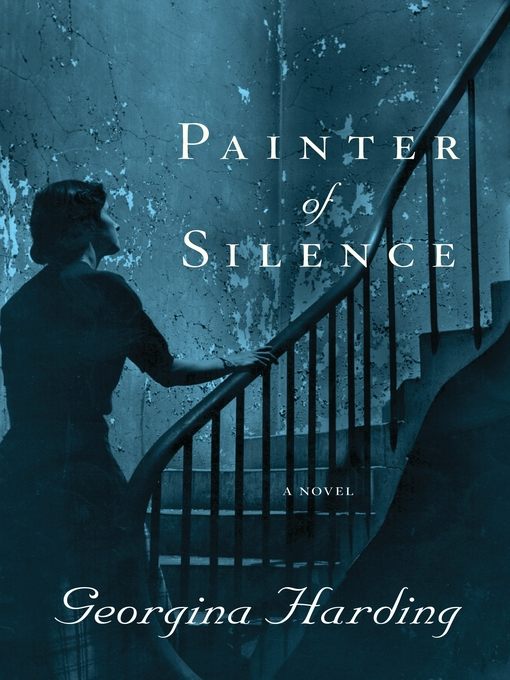
Painter of Silence
A Novel
کتاب های مرتبط
- اطلاعات
- نقد و بررسی
- دیدگاه کاربران
نقد و بررسی

July 2, 2012
Harding’s well-crafted new novel (after The Spy Game) is the touching tale of a deaf mute, a young nurse, and a brief love overshadowed by WWII. In the early 1950s, Safta discovers a man slumped on the steps of the hospital where she works, in the Romanian town of Iasi. Though he cannot hear or speak, she remembers him from their childhood together: Safta and her family once lived on a grand estate in Poiana before the war, and this man, Tinu, was the son of the cook. Despite their vastly different backgrounds, the two developed a deep friendship. In 1939, when Tinu and Safta are 16-years-old, an entrancing Romanian raised in France arrives at the manse and captures Safta’s heart. Throughout the summer, Tinu silently observes Safta and Andrei’s blossoming romance. But then war descends and changes everything. Now, reunited at the hospital, Safta and Tinu relive the past through Tinu’s totemic drawings of the people and places his quiet presence has graced. Harding effortlessly alternates between pre- and post-WWII, and her expert pacing lends a moving solemnity to the proceedings. Agent: Broo Doherty, Wade & Doherty Literary.

August 15, 2012
A double portrait, executed in clean lines and strong light, of a daughter of the manor, a mute servant boy and the destruction of their settled life in rural Romania by World War II. The English writer Harding has published both novels (The Spy Game, 2009, etc.) and nonfiction. Though the title refers to Augustin, nicknamed Tinu, a deaf-mute with a savant's gift for drawing and whimsical constructions of paper and cardboard, much of the book belongs to Elisabeta, who answers to Safta. Safta and Tinu grow up alongside each other in decadent tranquility. Safta's mother brings Tinu into the governess' classroom to be educated alongside her own children. The failure of this initiative unravels the weak ties that bind the master's child to the servant's. Tinu and Safta lead separate, unequal lives. Safta's brothers leave home, return for vacation; she falls in love. Tinu works in the stables. The war arrives. Circumstances drive them apart, and fate, it seems, reunites them. Throughout, Tinu continues his methodical recording of his surroundings in drawings and constructions. If he carries a torch for Safta, it burns no brighter than a match; he is locked in himself and locked out of the world. The slow accumulation of the details and implications of Tinu's rejection of language is perhaps the finest of this book's many excellences. The other characters, the author, even most readers, are trapped in language, and what looks like stubbornness is just as likely Tinu's choice, a viable alternative to our given reality, even if it severely limits his capacity to share it. When Tinu's drawings get him into trouble, Romanian words he copies for their forms, unaware or uninterested in their meanings, appear untranslated in the text, as strange to us as they are to him. Harding has created a memorable portrait in words of an exile from language.
COPYRIGHT(2012) Kirkus Reviews, ALL RIGHTS RESERVED.

July 1, 2012
After WWII has ended and the Communists have taken over, a young man shows up at a hospital in Iasi, Romania. He is ill, and he is also deaf and mute. He has come to find Safta, who is working in the hospital as a nurse. They grew up together at Poiana, a family estate, and though Safta was the daughter of the house and Tinu the cook's bastard, they have always shared a special bond. Having no language, Tinu draws pictures of the places he knows, and Safta knows these constitute his means of making sense of the world. The dislocations of war sent Safta to the front as a nurse while Tinu and the servants stayed behind. Together again, they journey back to Poiana, which is deserted. For Safta, it's a way to reconnect with the past, but time has no meaning for Tinu, always at the mercy of forces he cannot understand. Though Harding's novel is firmly set in historical time, which is Safta's reality, Tinu seems to exist on a different plane, and the multiple dimensions give the book a peculiar power.(Reprinted with permission of Booklist, copyright 2012, American Library Association.)

























دیدگاه کاربران